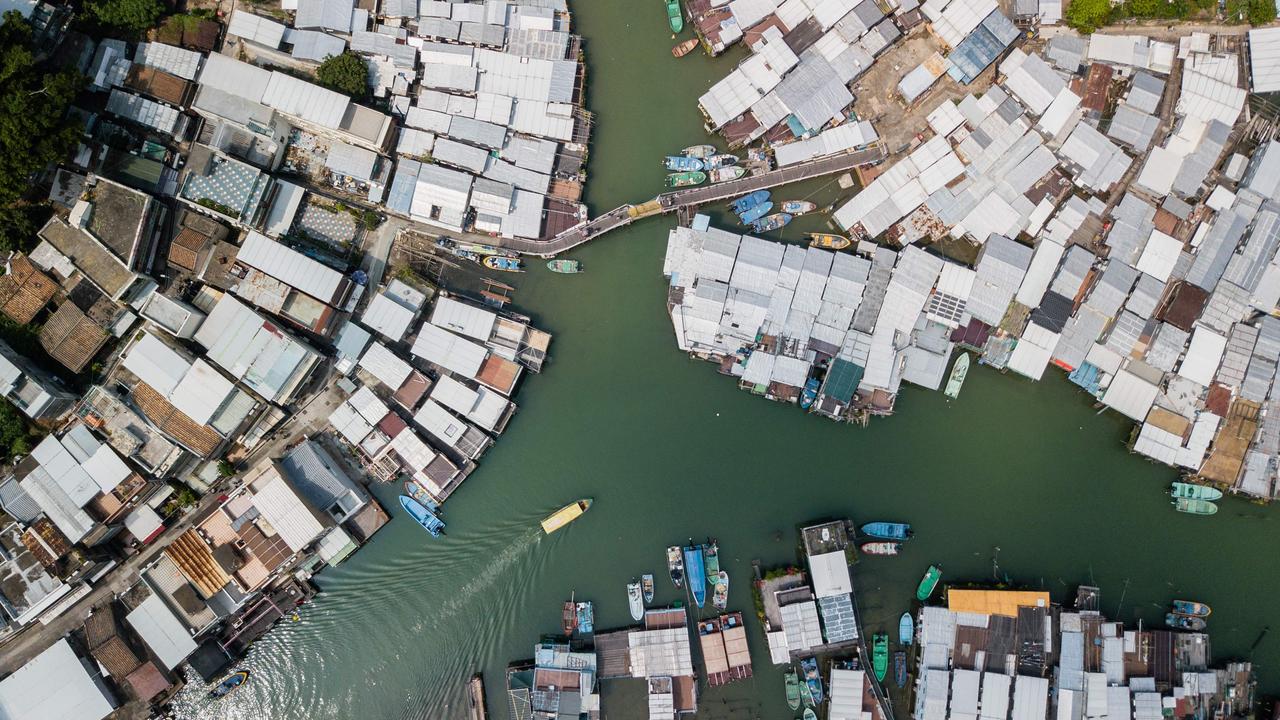‘Global scourge’: China crisis deepens
A catastrophic problem facing China that will impact the rest of the world is coming to a head – and every Aussie will be affected.
The South China Sea has been trawled into a watery desert. Vital spawning grounds have been turned into artificial island fortresses. The situation isn’t much better in the East China Sea, warns a new study.
And that may drive fishers into distant waters.
Research modelling the impact of the catastrophic overfishing in the region when combined with the increasingly obvious effects of climate change warns of pending ecological collapse.
A University of British Columbia report, Sink or swim: the future of fisheries in the East and South China seas, finds the next 10 years will determine the regions’ fate.
And that, in turn, will have a ripple effect on the rest of the world.
“Under certain climate change scenarios, seafood species that are mainstays of the Hong Kong seafood market, such as groupers and threadfin breams, could be reduced to a fraction of their present population by the end of the century – if not driven completely to extinction,” Professor Rashid Sumaila says. “This is especially the case in the tropical waters of the South China Sea, where many fish species are already facing the limits of their heat tolerance.”
Fish are already behind ongoing diplomatic crises in the China Seas.
Early this year, more than 200 Chinese fishing ‘militia’ vessels moored in the Philippines’ Whitesun Reef in an overt act of territorial control. Last year, a Chinese fleet triggered a similar international crisis when it surrounded Ecuador’s Galapagos Islands – an international wildlife sanctuary – in a quest for fresh fishing grounds.
Global scourge
Fish is a vital source of protein for more than 40 per cent of the world’s population.
Illegal and commercial overfishing don’t only decimate fish stocks, they can deprive local populations of the ability to feed themselves, yet alone earn an income.
The Council on Foreign Relations (CFR) think tank recently warned illegal fishing has become a ‘global scourge’.
“Carried out by malicious actors in the shadows of the world’s oceans, it can devastate ecosystems, degrade food stocks and undermine fragile fishing economies,” analyst John Vann says. “And, in large part, the poorest countries in the world, which depend on fisheries for food and livelihoods, are hit the hardest.”
It’s not just a crisis in the South China Sea. Off the west coast of Africa, he says, the illegal catch may be as high as 40 per cent of all fish pulled from the region’s waters. It’s also a growing problem off South America, the eastern Indian Ocean and throughout Oceania.
That puts it well within Australia’s sphere of influence.
“In 2020, the US Coast Guard said that IUU [illegal, unreported and unregulated] fishing has replaced piracy as the leading global maritime security threat. It is estimated that up to one in every five fish caught around the world is obtained through [illegal] fishing,” Mr Vann says.
Fish-farming ‘greenwashed’
According to the Sink or Swim report, a major driver of overfishing is the burgeoning aquaculture industry.
Touted as a green alternative to open seas fishing, the demand by such farms for feedstock is driving a market in undersized catches.
“Many people are unaware that aquaculture can contribute to overfishing, rather than counteract it,” University of Hong Kong Professor Yvonne Sadovy says. “By using wild-caught fish for aquaculture feed, we are harvesting juvenile fish of commercially important species and potentially jeopardising future regional food security.”
The Chinese aquaculture industry accounts for some 62 per cent of global fish farm production, the study says.
“If fleets were to only catch mature adult fish, such as by using nets with larger holes, the study estimated the average annual catch in tonnes and the average revenue would increase over a business-as-usual scenario,” Professor Sadovy says. “This is because fish can reach maturity, marketable sizes and fetch higher prices.”
Under this scenario, the study says the regional catch could more than triple as fish stocks regenerate.
Jamie Seidel is a freelance writer | @JamieSeidel
For all the latest Technology News Click Here

